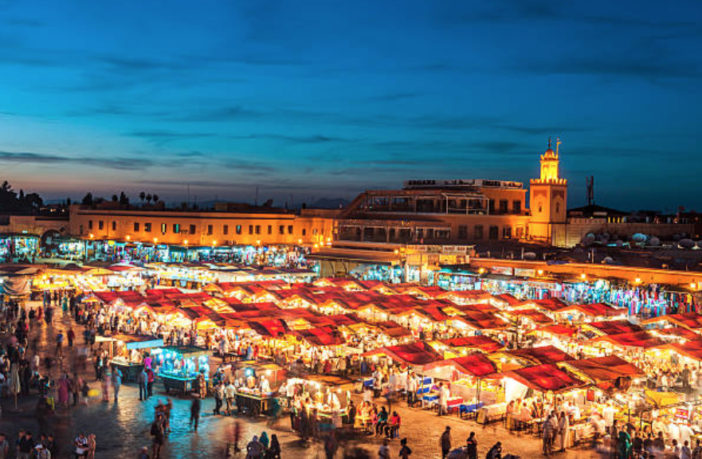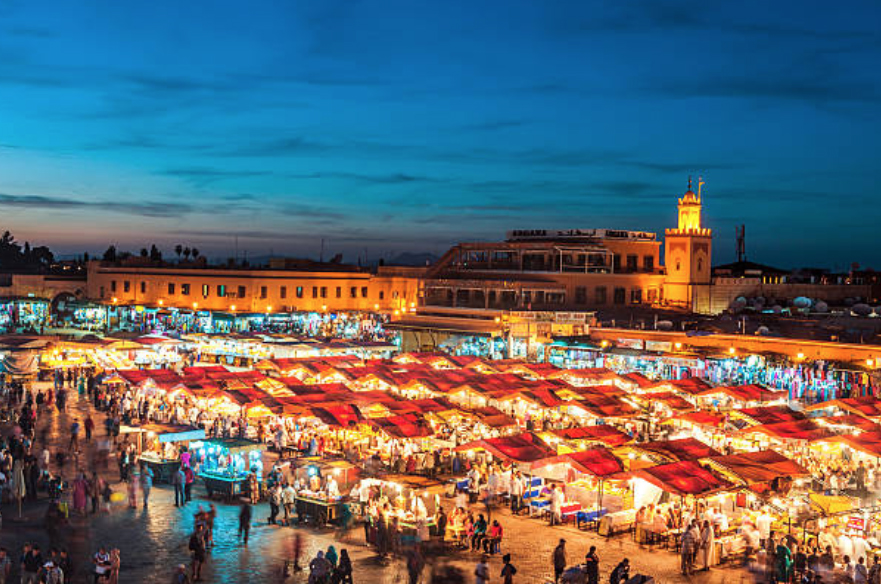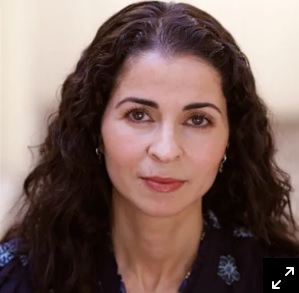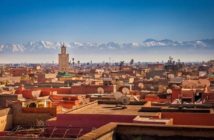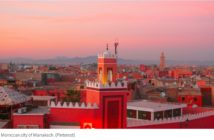SMH
By Jane Sullivan
I was going on holiday to Morocco so I thought I’d prepare by reading Paul Bowles’ celebrated novel, The Sheltering Sky. It’s about a young American couple drifting across North Africa, and Bowles lived most of his life in Tangiers, so I thought he’d capture the atmosphere pretty well.
Big mistake. The Sheltering Sky is full of atmosphere, but it’s a suffocating gloom. Just about everything leads to death and madness. The American, English and French characters are repulsive and the Arabs no better: women fare particularly badly. Bowles’ prose is frequently superb, but by the end of the book I was seriously worried about what I’d let myself in for.
As it turned out, my tour of Morocco was enchanting and blessedly free of existentialist despair. Belatedly I found out what I should have read, in a splendid anthology, Marrakesh: Through Writers’ Eyes, which I picked up – where else? – in Marrakesh.
This collection, edited by Barnaby Rogerson and Stephen Lavington, shows the myriad and often strikingly different ways Western writers have reacted to the “Red City” between the Atlas mountains and the Sahara, which has long been one of the most exoticised and romanticised destinations in the world.
There’s breathless excitement at simply being in the city at all: strolling around the huge Jeema al Fnaa square, packed with “snake handlers and fortune tellers, healers and madmen, door-to-door dentists, witches, water-sellers and a single blind man waiting for a coin to be pressed into his palm” (Tahir Shah). It’s still like that.
Historians, explorers and envoys give us a glimpse of a turbulent past, including some unlikely but very funny tales, notably from Walter Harris (author of Morocco That Was). George Orwell is disturbed by the poverty, and how a badly treated donkey is more appalling to Westerners than a badly treated brown person.
Some of the best observations come from women. Edith Wharton takes us on a walk through the crazy maze of the souk, with its atmosphere of “mystery and menace more stifling than the smell of camels and spices and black bodies and smoking fry”.
Leonora Peets collects stories of women weaving spells from dead bodies; Henriette Celarie delights in the bright costumes of the women and girls during Ramadan; and Esther Freud tells us how she unsuccessfully trained as a child acrobat to perform in Jeema al Fnaa square.
Paul Bowles’ angst seems to have leaked into the soul of Gavin Maxwell. Best known for his book about otters, Ring of Bright Water, Maxwell also travelled extensively in Morocco and wrote Lords of the Atlas, a history of the Glaoui brothers, who reigned over the city for half a century. But in Marrakesh, stuck in a meagre room in the dark, narrow alleyways of the medina, he succumbed to a long depression he called his “haywire winter”.
Perhaps Marrakesh acts as a mirror to the Western writer’s mood: the same scene or event can seem beautiful and thrilling, or cruel and oppressive. So what I’d like to do next is read books by Moroccan writers, who might have a very different perspective.
I’ll be looking for novels by Tahar Ben Jelloun, who won France’s Prix Goncourt award; by the Moroccan-American writer Laila Lalami; An Arab Melancholia by Abdellah Taia; For Bread Alone by Mohamed Choukri; and Fatima Mernissi’s feminist study of Moroccan women, Beyond the Veil. And maybe I’ll return to the writings of Ibn Battuta, who explored North Africa and Asia back in the Middle Ages.
It’s always the way. Books make me want to travel, and travel makes me want to read books.
Janesullivan.sullivan9@gmail.com




